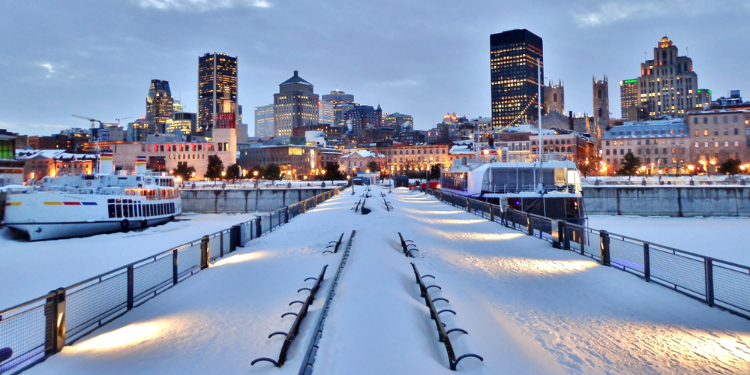
Is the dreamland of immigrants losing its shine? Many expats say living in Canada is far from the postcard scenes. Others put things into perspective – living well in Canada is possible as long as you follow a few essential steps. In short, the journey to a successful immigration can be long and tedious. So, what does it take to live well in Canada? What are the pitfalls to avoid?
Understanding the realities of expat life in Canada
"Expats are leaving Canada". International media regularly report on expatriates packing their bags, mainly due to the high cost of living, the housing crisis, etc. Salaries don't always keep up, and immigrants' qualifications are often not recognized. Future immigrants also point to inconsistencies in Canada, which, they say, advocates openness on paper while building barriers that make access to permanent employment and residence more challenging. However, labor shortages persist, and the government has embarked on a new immigration plan with high levels, although they tend to stabilize.
Between the postcard and reality, there is a world that many expatriates are discovering. For the most disappointed, this world does not really encourage long-term immigration. And yet, "everyone wants to move to Canada". According to various rankings of top expat destinations, Canada remains a favorite. It is praised for its art and gentle way of life, its warm and friendly population and its beautiful landscapes. It is also praised for its immigration-friendly policies.
Your essentials for a thriving life in Canada
What are the essential things to consider when moving to and settling in Canada? First of all, you need to get rid of misconceptions. The favorite expat destination is also going through crises that impact daily life. Far from racing along the highway to success, expect instead a long walk along sometimes steep paths.
Understanding the cost of living in Canada
This is one of the first points to consider, especially if your income is limited. How much money will you need to live in Canada? What will your main expenses be? Bear in mind that these estimates may vary from one region to another and from one city to another.
Housing will be one of the main expenses. According to the government, 35% to 50% of Canadians' income is consumed by housing. Also, pay attention to all rent-related charges (insurance, electricity, gas, water, Internet, etc.). Be careful with the Internet as its cost can vary greatly.
Transportation is another significant expense. Again, it all depends on the city where you're relocating to. A small town in the countryside may save you money on rent, but not on transport, especially if your workplace or school is far from your home. Regarding food, you'll learn to navigate between minimarkets offering moderate prices and other retailers. Tax will be charged on your purchases depending on your province of residence. However, all provinces apply a 5% federal goods and services tax (GST). Of course, remember taxes, which vary depending on your province of residence.
Consider your clothing budget. It is less about vanity and more about survival. Canadian winters are very harsh, and expatriates are regularly surprised by the extreme temperatures. Understanding the cost of living in Canada will help you move beyond the postcard picture and confront the reality of expat life. You'll be able to establish your budget and define your long-term plans better.
Choosing the right city to live in
Toronto, Calgary and Vancouver are regularly cited as the most pleasant Canadian cities to live in thanks to their economic dynamism, good healthcare and education systems, beautiful landscapes, etc. But these are also the cities where rents are skyrocketing. In March 2023, the average rent in Canada rose to 2004 Canadian dollars. That's 10.8% higher than in March of the previous year. In Vancouver, rent rose to over 3,000 Canadian dollars per month. Rising prices have also been observed in Toronto (around CA$2,506 per month), Calgary (around CA$1,890) and Montreal (around CA$1,876 per month). Of course, it all depends on the neighborhood, the property's condition, the number of rooms, etc.
Demand is too high, and there is a shortage of new housing. According to the Canada Mortgage and Housing Corporation (CMHC), Canada will need an additional 3.5 million housing units by 2030. Some are pointing to the massive influx of expatriates. In August 2023, former Immigration Minister Sean Fraser, who has since become Housing Minister, linked the housing crisis to the number of international students. However, the new Immigration Minister, Marc Miller, refused to stigmatize expatriates.
Taking an interest in the housing crisis is another way to overcome misconceptions. Finding a place to live may be a real challenge. Your first accommodation will probably be temporary. The key is to find the best compromise between your workplace or study location and housing, considering transport costs.
Taking stock of the job market
Many sectors are currently hiring in Canada: industrial trades, engineering, healthcare, education, social services, insurance, banking and finance, aerospace, administration, transport, logistics, sales and marketing, information and communication technology (ICT), accounting, construction, restaurants, IT, etc. While the job opportunities are there, accessing them can be a challenge.
Many Canadian companies prefer profiles with local experience. Expatriates arriving with their foreign diplomas and professional experience are disadvantaged. Immigrants have criticized the requirement for Canadian work experience for many years. Many find themselves trapped, with a degree but no experience in the country and no employer willing to hire them without that famous experience. Others suggest doing an internship with the hope of being hired by the company. However, this is not a guaranteed option. Expatriates often find themselves trapped in a cycle of temporary jobs, settling for menial jobs for which they are overqualified, with lower salaries. All this makes it more and more difficult to cope with exorbitant rents and other expenses.
To end this vicious circle, Ontario announced the ban on Canadian employers requiring Canadian work experience on 9 November 2023. This should make it easier for foreigners to find well-paid jobs that match their qualifications. The first measures have already been taken: since December 2023, regulated professions can no longer require Canadian work experience.
How do you ensure a good expat experience in Canada?
Ready for the Canadian dream? To maximize your chances, stay grounded.
Don't think that immigrating to Canada is easy
"Canada, the best country for immigrants". Behind the catchy slogans are detailed explanations of the immigration process to Canada: immigration program, points-based visa system, validation of diplomas, etc. Yes, it is possible to live well in Canada, but only if you are well-informed. Be extra cautious; like many aspiring expats, you might think you know Canada well but, in reality, have only a partial view of it.
Don't move without qualifications or experience
Backpacking can be a fantastic adventure, but what's in your backpack? You'll come across stories of expats who have made it to Canada by moving with nothing in their pocket. But don't rely solely on these testimonials to build your career plan. If you're still a student, consider completing your studies in Canada. Even though the country has a long way to go regarding the professional experience requirement, it primarily seeks graduates and qualified professionals.
Make sure you have a good command of English
While opinions differ on this point, remember that Canada has two national languages: French and English. Many French speakers have the misconception that immigrating to Quebec is "easy" as long as you speak French. They are even more disappointed by the difficulties they encounter once they have settled in Quebec. For greater chances of finding a job, speaking both English and French is better.
Do not underestimate the climate
Canada has a continental, oceanic, and subarctic climate characterized by four distinct seasons, marked by a long, very cold winter. Snow can remain until March or April. Temperatures fall well below zero for a long time. Summer, from June to September, is hot, even sweltering. So be prepared for the Canadian cold, and don't be surprised by the weather.
More tips for settling properly in Canada
Good practical preparation (administrative formalities, work, accommodation, etc.) goes hand in hand with good mental preparation. Your project will be planned in your mind first. You are not expected to make a detailed plan, but at least the main lines to stay on track.
If you need help, get in touch with a Chamber of Commerce, your embassy, or any other organization related to Canada. Seek the assistance of an expatriation coach, read books about Canada, and make contact with people living in Canada (whether they are foreigners or not). Don't forget about job forums that Canada may organize. Immigration services often recruit overseas.
To socialize, engage in activities in your university, your neighborhood, etc. Join an association, go to a sports or cultural club. Your city of residence may organize special events.
Be patient and persevere. Faced with the progressive departure of immigrants, the government has acknowledged that it still has a long way to go in terms of welcoming foreigners and fighting discrimination. In fact, it has committed to strengthening its measures for welcoming immigrants in the coming months and years.
Useful links:
Working in Canada: The resource guide
Rental: Canada Mortgage and Housing Corporation (CMHC) resources for newcomers
Newcomers: free services to facilitate job search and settlement




















Comments